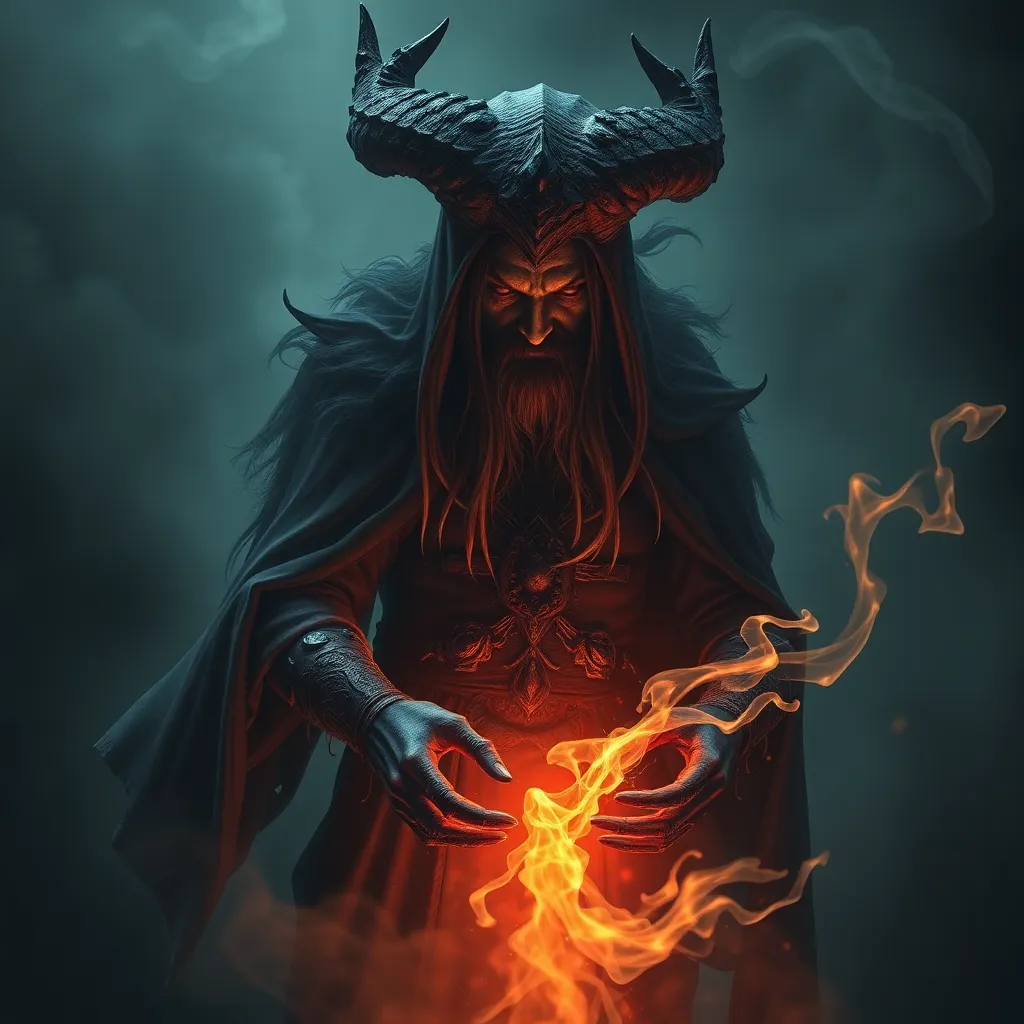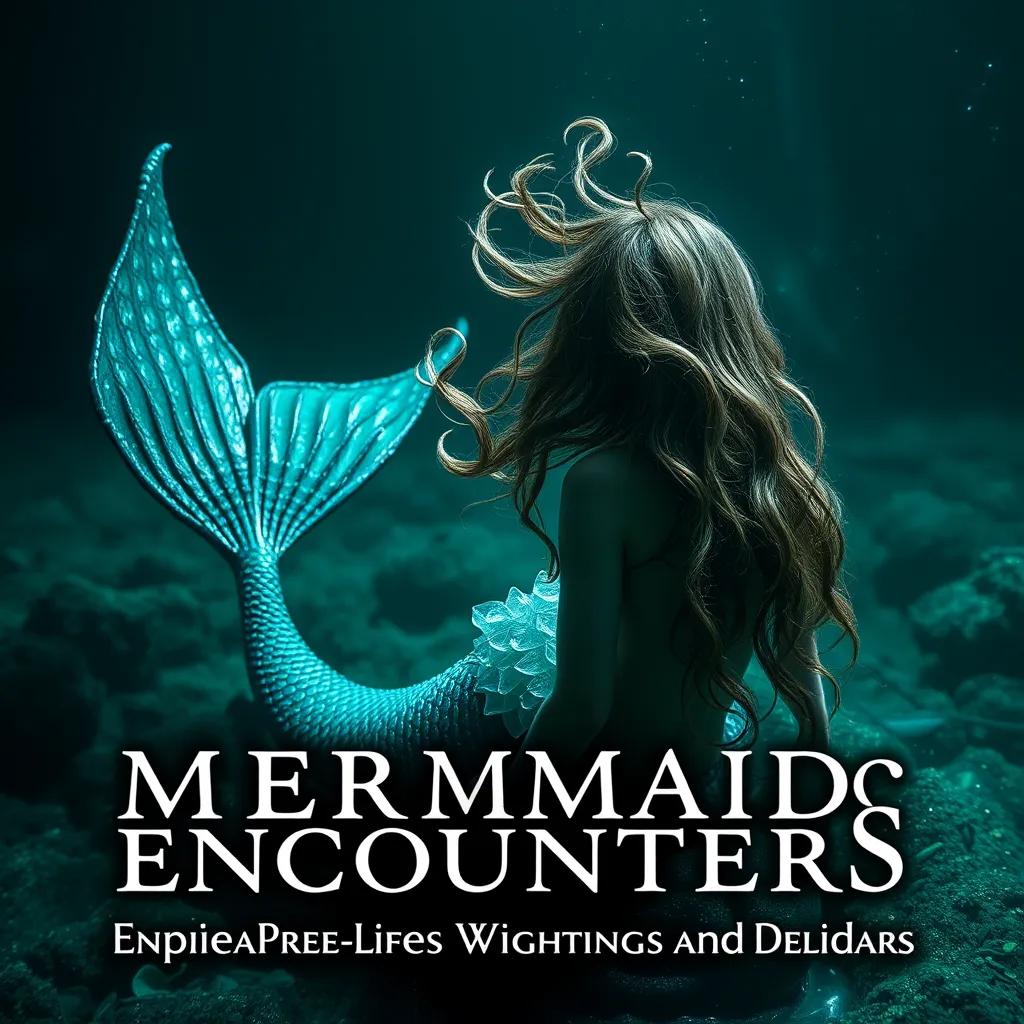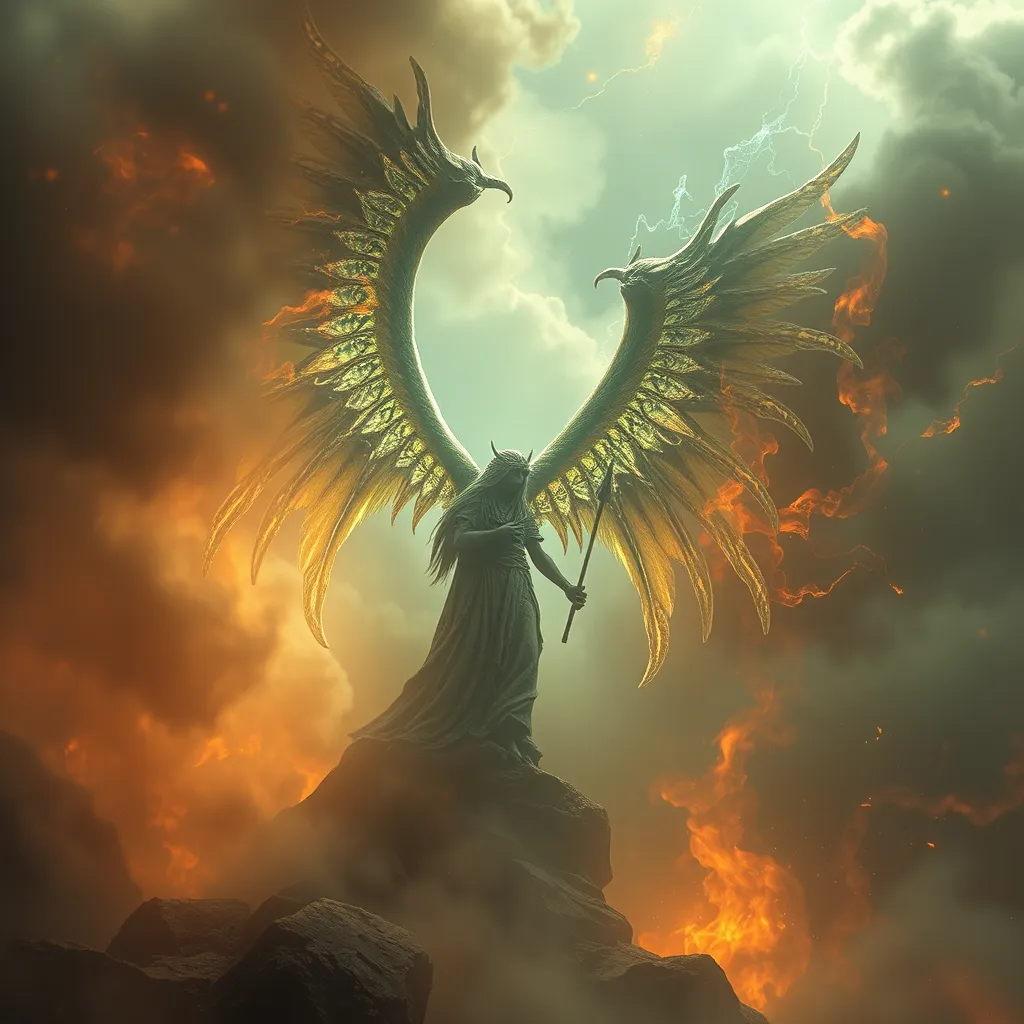The Orcish Relationship with Magic & the Supernatural: Exploring the Role of Magic & Supernatural Entities in Orcish Lives
I. Introduction
Orcish culture is rich and complex, steeped in traditions that intertwine the mundane with the mystical. Throughout history, Orcs have developed a profound relationship with magic and the supernatural, viewing them not just as tools or forces, but as integral parts of their existence. This article aims to explore how magic and supernatural entities shape Orcish lives, beliefs, and societal structures.
The significance of magic in Orcish society cannot be overstated. It is woven into their daily lives, from agricultural practices to spiritual rituals. The reliance on magic reflects a deep-seated belief in the interconnectedness of all things, where the natural and supernatural realms collide. This exploration will delve into the historical context, types of magic, the influence of supernatural entities, and the impact of these beliefs on Orcish culture.
II. Historical Context of Orcish Magic
To understand the Orcish relationship with magic, one must look back at its origins in folklore. Orcish magic has roots in ancient practices that emphasized harmony with nature and respect for the spirits inhabiting it. Early Orcish shamans were often seen as mediators between the physical world and the spirit realm, guiding their clans through rituals that invoked magical assistance.
As history unfolded, various events shaped Orcish magical beliefs. Key moments include:
- The establishment of the Great Orcish Clans, which led to the codification of magical practices.
- Encounters with other cultures that introduced new magical concepts and practices.
- Major conflicts that necessitated the use of magic in warfare and protection of tribes.
III. Types of Magic in Orcish Culture
Orcish culture features diverse forms of magic, each serving unique purposes in their societal framework. The primary types include:
A. Shamanistic Practices and Spiritual Connections
Shamanism in Orcish culture is a cornerstone of their magical practices. Shamans serve as spiritual leaders, often invoking the spirits of nature, ancestors, and deities to provide guidance and healing. Their rituals typically involve:
- Drumming and chanting to enter trance states.
- Herbalism and the use of natural elements in healing.
- Divination practices to foresee future events or assess community needs.
B. Elemental Magic and Its Role in Daily Life
Elemental magic is prevalent in everyday Orcish life, heavily influencing agriculture, craftsmanship, and combat. Orcs often harness the powers of the four elements—earth, air, fire, and water—to enhance their productivity and protect their communities. For example:
- Earth magic is used to ensure bountiful harvests.
- Fire magic plays a role in weapon forging and protection against enemies.
- Water magic is vital for irrigation and fishing practices.
C. Curses, Hexes, and Protective Charms in Orcish Society
Orcish society also practices the use of curses and hexes, often employed to ward off enemies or to seek revenge. Protective charms are commonly created and worn by Orcs to shield themselves from malevolent forces or ill intentions.
IV. Supernatural Entities in Orcish Beliefs
The Orcish pantheon is populated with various deities and spirits, each representing different aspects of nature and life. These entities serve essential roles in guiding and influencing Orcish communities:
A. Overview of Deities and Spirits in Orcish Mythology
Orcish mythology features numerous gods and spirits, such as:
- Grunthar: The god of war and strength, revered by warriors.
- Ishtara: The goddess of fertility and earth, worshipped by farmers.
- Thokar: The spirit of the hunt, guiding hunters to success.
B. The Role of Ancestral Spirits in Guiding Orcish Communities
Ancestors hold a special place in Orcish beliefs. They are often called upon for wisdom and protection, with rituals conducted to honor their memory and seek their guidance in decision-making processes.
C. Interaction Between Orcs and Supernatural Entities
Orcs regularly interact with supernatural entities through offerings, prayers, and rituals. These interactions are seen as essential for maintaining balance and harmony within their communities.
V. Magic in Orcish Society and Daily Life
Magic permeates every aspect of Orcish life, from agriculture to warfare. It serves practical purposes while also reinforcing cultural beliefs.
A. The Role of Magic in Agriculture and Hunting
Orcish farmers and hunters often rely on magical practices to ensure successful yields and hunts. This includes:
- Performing rituals before planting crops to invoke blessings from earth spirits.
- Using charms to improve the luck of hunts and ensure safe returns.
B. Healing Practices and the Use of Magical Remedies
Healing in Orcish culture often combines herbal medicine with magic. Shamans and healers utilize:
- Natural remedies alongside incantations to cure ailments.
- Rituals to cleanse negative energies affecting the sick.
C. Magic in Warfare and Protection of Orcish Tribes
In times of conflict, Orcs harness magic for protection and strength. This includes:
- Enchantments on weapons to enhance their lethality.
- Defensive spells to safeguard villages from attacks.
VI. Orcish Rituals and Ceremonies Involving Magic
Rituals and ceremonies play a significant role in Orcish society, often invoking magic to achieve desired outcomes.
A. Important Rituals That Invoke Magic and Supernatural Forces
Key rituals include:
- Seasonal festivals celebrating the changing of the seasons and the spirits associated with them.
- Rites of passage for young Orcs, marking their transition into adulthood with magical blessings.
B. Seasonal Celebrations and Their Magical Significance
Orcish seasonal celebrations often involve elaborate rituals that honor the deities and spirits. These events reinforce community bonds and are filled with music, dance, and storytelling.
C. The Role of Shamans and Magic Practitioners in Ceremonies
Shamans are central figures in Orcish ceremonies, leading rituals and ensuring that the community remains aligned with magical forces. Their knowledge and skills are highly respected, and they are seen as vital to the tribe’s well-being.
VII. Conflicts and Misunderstandings Surrounding Orcish Magic
Despite its significance, Orcish magic has often faced stereotypes and misconceptions from outside cultures.
A. Stereotypes and Misconceptions About Orcish Magic
Orcish magic is sometimes portrayed as primitive or barbaric, overlooking its deep cultural roots and complexity. This misunderstanding can lead to prejudiced views about Orcish practices.
B. Historical Conflicts with Other Cultures Regarding Magical Practices
Throughout history, Orcs have encountered conflicts with other cultures that deemed their magical practices as threatening or unnatural, resulting in cultural clashes and violent confrontations.
C. The Impact of These Misunderstandings on Orcish Identity
These perceptions have significantly impacted Orcish identity, causing some communities to either hide their magical practices or strive to reclaim and redefine them in the face of external pressures.
VIII. Conclusion
In conclusion, magic and the supernatural play a vital role in Orcish lives, shaping their culture, beliefs, and identity. From ancient practices rooted in shamanism to modern interpretations of elemental magic, the evolving nature of Orcish magic reflects the resilience and adaptability of Orcish society.
As Orcs continue to navigate the complexities of modernity, preserving their magical heritage remains crucial. Understanding and appreciating the depth of Orcish magical practices can foster greater respect and recognition of their unique cultural identity in a diverse world.



